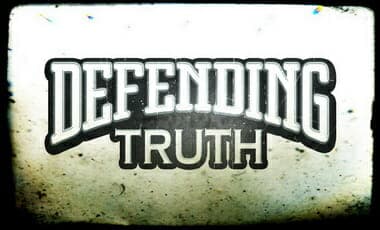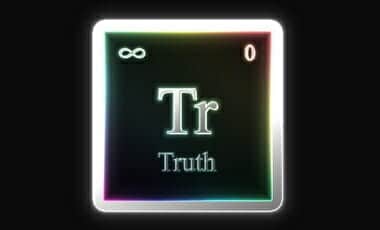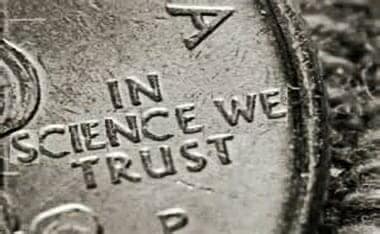I wanted to share a response to a great, simple question. But first, here is the set up… The Renegade Institute for Liberty at Bakersfield College (whom I will refer to as RENEGADE), a movement of like minded peeps I fully endorse, posted the following on their Facebook:
James Lindsay, a leading critic of the philosophy of the totalitarian left and their politics, penned a manifesto outlying the key moral virtue essential to the preservation of liberty: being based. As used by Lindsay, “based” is a technical term meaning fidelity to truth. He defines it as “the trait of character [is] the willingness to resist lies, be yourself, and tell the truth even when people won’t like you (or will kill you) for it.” Unless most of us become based, totalitarianism is inevitable.
Firstly. The manifesto is well worth it’s weight in salt. I am not saying don’t read it or inculcate some of it’s meaning and ways to approach the issues of our day. Remember the 80/20 rule:
- “The person who agrees with you 80 percent of the time is an 80 percent friend and not a 20 percent enemy” – Ronald Wilson Reagan
But as a friend noted today in a Bible study, atheist’s must steal from God – even mentioning the wonderful book by Frank Turek, “Stealing from God.” That is the deeper issue here that I pointed to.
James Lindsay invokes Aleksandr Solzhenitsyn no less than 10-times by name. But James being an ardent atheist/naturalist, never explains to his audience the final conclusion of how Aleksandr Solzhenitsyn believed they got to this miserable place in human history.
Here is my post to the article being linked by RENEGADE, with a longer Solzhenitsyn quote:
RPT NOTE TO POST:
I will read this later today, however, Lindsay could never bring himself to say the following [as a committed atheist, ant-theist]:
“More than half a century ago, while I was still a child, I recall hearing a number of older people offer the following explanation for the great disasters that had befallen Russia: ‘Men have forgotten God; that’s why all this has happened.’ Since then I have spent well-nigh fifty years working on the history of our Revolution; … [and] if I were asked today to formulate as concisely as possible the main cause of the ruinous Revolution that swallowed up some sixty million of our people, I could not put it more accurately than to repeat: ‘Men have forgotten God; that’s why all this has happened.'”
Quoted in Ericson, Edward E. Jr. and Daniel J. Mahoney, The Solzhenitsyn Reader: New and Essential Writings 1947-2005. Wilmington, Del.: ISI Books, 2006, page 577.
____
In other words, the American manifesto acknowledge and remembered God. Any manifesto which does not ends like the Jacobins.
The longer quote is for more context to the video, which I found while doing this post:
….More than half a century ago, while I was still a child, I recall hearing a number of older people offer the following explanation for the great disasters that had befallen Russia: “Men have forgotten God; that’s why all this has happened.”
Since then I have spent well-nigh 50 years working on the history of our Revolution; in the process I have read hundreds of books, collected hundreds of personal testimonies, and have already contributed eight volumes of my own toward the effort of clearing away the rubble left by that upheaval. But if I were asked today to formulate as concisely as possible the main cause of the ruinous Revolution that swallowed up some 60 million of our people, I could not put it more accurately than to repeat: “Men have forgotten God; that’s why all this has happened.”
What is more, the events of the Russian Revolution can only be understood now, at the end of the century, against the background of what has since occurred in the rest of the world. What emerges here is a process of universal significance. And if I were called upon to identify briefly the principal trait of the entire 20th century, here too, I would be unable to find anything more precise and pithy than to repeat once again: “Men have forgotten God.”…
You see, in the end, James Lindsay thinks “God” is part of the problem, not the solution. Which is why I posted that. The totalitarianism Lindsay writes against thrives in godless attire. However, this paragraph I really loved. For one it references “Truth,” something I respond to. And another is this is the reason many comedians are sounding the alarm… the freedom to do even stand up comedy is under attack by the Left.
- There are, in the end, only two things that can tear such a regime down, and they are, as it happens, interrelated. They are the two most powerful weapons against tyranny in the human arsenal: telling the truth, including by refusing the lie, and laughter. Both are based, and to win both are necessary. While Solzhenitsyn tells us that the whole of a tyrannical regime can be brought down in the end by a single person repeatedly telling the truth, the fact is that the USSR that tyrannized him actually fell when its subjects—for citizens they were not—began to laugh at it. So, where being based begins in a certain stoicism, it’s the most based when it’s stoicism with a sense of humor. (THE BASE MANIFESTO)
Renegade’s Question:
RENEGADE, for reasons of keeping thought alive, being thorough, a fan of conversation and deeper thinking, asked this simple question:
- Sean G, do you think that being based implies believing in God? Or is it consistent with disbelief, as well as belief, in God?
THE REST IS ME, as well as some additions, which I will note.
Great question. Lindsay has a lot of moral pronouncements in the manifesto. A lot. All he has to enforce such things is the power of government. So, in a healthy society, government protects Natural Rights… government does not bestow them. Free speech and thought is a Natural Right, or law, if you will.
- “…the separate and equal station to which the Laws of Nature (LN) and of Nature’s God (NG) entitle them…. ‘oh, you know, the thing’.” (Declaration + Joe Biden)
The first (LN) cannot subsist separated from the later (NG) for long.
Having read all three Secular Manifestos, I see similar attributions to “how humans ‘should’ act,” with no reasoning behind it. Utilitarianism? Yes, many aspects therein could be helpful to society as a whole. But if that is it, someone will eventually come along to point out another “utility” as being better.
Take for instance rape. Something you would think everyone would understand as an egregious, absolute, evil.
- theism: evil, wrong at all times and places in the universe — absolutely;
- atheism: taboo, it was used in our species in the past for the survival of the fittest, and is thus a vestige of evolutionary progress… and so may once again become a tool for survival — it is in every corner of nature;
- pantheism: illusion, all morals and ethical actions and positions are actually an illusion (Hinduism – maya; Buddhism – sunyata). In order to reach some state of Nirvana one must retract from this world in their thinking on moral matters, such as love and hate, good and bad. Not only that, but often times the person being raped has built up bad karma and thus is the main driver for his or her state of affairs (thus, in one sense it is “right” that rape happens).
In a bit of an addition here, I will note that some of the four horseman of the New Atheists note that our feeling of being conscience, is illusory. Much like pantheists… which is why many atheists embrace a form of pantheism.
Consciousness an Illusion (Addition)
Below are examples of atheists and theists agreeing that if atheism is true, truth is no longer a category to be trusted (find many more or fuller quotes and videos HERE):
- Determinism is self-stultifying. If my mental processes are totally determined, I am totally determined either to accept or to reject determinism. But if the sole reason for my believing or not believing X is that I am causally determined to believe it I have no ground for holding that my judgment is true or false. (H.P. Owen)
- If my mental processes are determined wholly by the motions of atoms in my brain, I have no reason to suppose that my beliefs are true…and hence I have no reason for supposing my brain to be composed of atoms. (J.B.S. Haldane)
- The principle chore of brains is to get the body parts where they should be in order that the organism may survive. Improvements in sensorimotor control confer an evolutionary advantage: a fancier style of representing [the world] is advantageous so long as it… enhances the organism’s chances for survival. Truth, whatever that is, takes the hindmost. (Patricia Churchland)
- He thus acknowledged the need for any theory to allow that humans have genuine freedom to recognize the truth. He (again, correctly) saw that if all thought, belief, feeling, and choice are determined (i.e., forced on humans by outside conditions) then so is the determinists’ acceptance of the theory of determinism forced on them by those same conditions. In that case they could never claim to know their theory is true since the theory making that claim would be self-referentially incoherent. In other words, the theory requires that no belief is ever a free judgment made on the basis of experience or reason, but is always a compulsion over which the believer has no control. (Roy A. Clouser)
- If what he says is true, he says it merely as the result of his heredity and environment, and nothing else. He does not hold his determinist views because they are true, but because he has such-and-such stimuli; that is, not because the structure of the structure of the universe is such-and-such but only because the configuration of only part of the universe, together with the structure of the determinist’s brain, is such as to produce that result…. They [determinists – I would posit any philosophical naturalist] want to be considered as rational agents arguing with other rational agents; they want their beliefs to be construed as beliefs, and subjected to rational assessment; and they want to secure the rational assent of those they argue with, not a brainwashed repetition of acquiescent pattern. Consistent determinists should regard it as all one whether they induce conformity to their doctrines by auditory stimuli or a suitable injection of hallucinogens: but in practice they show a welcome reluctance to get out their syringes, which does equal credit to their humanity and discredit to their views. Determinism, therefore, cannot be true, because if it was, we should not take the determinists’ arguments as being really arguments, but as being only conditioned reflexes. Their statements should not be regarded as really claiming to be true, but only as seeking to cause us to respond in some way desired by them. (J. R. Lucas)
- …a lecture he attended entitled “Determinism – Is Man a Slave or the Master of His Fate,” given by Stephen Hawking, who is the Lucasian Professor of Mathematics at Cambridge, Isaac Newton’s chair, was this admission by Dr. Hawking’s, was Hawking’s admission that if “we are the random products of chance, and hence, not free, or whether God had designed these laws within which we are free.” In other words, do we have the ability to make choices, or do we simply follow a chemical reaction induced by millions of mutational collisions of free atoms? Michael Polanyi mentions that this “reduction of the world to its atomic elements acting blindly in terms of equilibrations of forces,” a belief that has prevailed “since the birth of modern science, has made any sort of teleological view of the cosmos seem unscientific…. [to] the contemporary mind.”
- If we were free persons, with faculties which we might carelessly use or willfully misuse, the fact might be explained; but the pre-established harmony excludes this supposition. And since our faculties lead us into error, when shall we trust them? Which of the many opinions they have produced is really true? By hypothesis, they all ought to be true, but, as they contradict one another, all cannot be true. How, then, distinguish between the true and the false? By taking a vote? That cannot be, for, as determined, we have not the power to take a vote. Shall we reach the truth by reasoning? This we might do, if reasoning were a self-poised, self verifying process; but this it cannot be in a deterministic system. Reasoning implies the power to control one’s thoughts, to resist the processes of association, to suspend judgment until the transparent order of reason has been readied. It implies freedom, therefore. In a mind which is controlled by its states, instead of controlling them, there is no reasoning, but only a succession of one state upon another. There is no deduction from grounds, but only production by causes. No belief has any logical advantage over any other, for logic is no longer possible. (Borden P Bowne)
- What merit would attach to moral virtue if the acts that form such habitual tendencies and dispositions were not acts of free choice on the part of the individual who was in the process of acquiring moral virtue? Persons of vicious moral character would have their characters formed in a manner no different from the way in which the character of a morally virtuous person was formed—by acts entirely determined, and that could not have been otherwise by freedom of choice. (Mortimer J. Adler)
Frank Turek notes Daniel Dennett’s dilemma when he says:
Atheist Daniel Dennett, for example, asserts that consciousness is an illusion. (One wonders if Dennett was conscious when he said that!) His claim is not only superstitious, it’s logically indefensible. In order to detect an illusion, you’d have to be able to see what’s real. Just like you need to wake up to know that a dream is only a dream, Daniel Dennett would need to wake up with some kind of superconsciousness to know that the ordinary consciousness the rest of us mortals have is just an illusion. In other words, he’d have to be someone like God in order to know that.
Dennett’s assertion that consciousness is an illusion is not the result of an unbiased evaluation of the evidence. Indeed, there is no such thing as “unbiased evaluation” in a materialist world because the laws of physics determine everything anyone thinks, including everything Dennett thinks. Dennett is just assuming the ideology of materialism is true and applying its implications to consciousness. In doing so, he makes the same mistake we’ve seen so many other atheists make. He is exempting himself from his own theory. Dennett says consciousness is an illusion, but he treats his own consciousness as not an illusion. He certainly doesn’t think the ideas in his book are an illusion. He acts like he’s really telling the truth about reality.
When atheists have to call common sense “an illusion” and make self-defeating assertions to defend atheism, then no one should call the atheistic worldview “reasonable.” Superstitious is much more accurate.
Stealing from God (Colorado Springs, CO: NavPress, 2014), 46-47.
…if evolution were true, then there would be selection only for survival advantage; and there would be no reason to suppose that this would necessarily include rationality. After a talk on the Christian roots of science in Canada, 2010, one atheopathic* philosophy professor argued that natural selection really would select for logic and rationality. I responded by pointing out that under his worldview, theistic religion is another thing that ‘evolved’, and this is something he regards as irrational. So under his own worldview he believes that natural selection can select powerfully for irrationality, after all. English doctor and insightful social commentator Theodore Dalrymple (who is a non-theist himself) shows up the problem in a refutation of New Atheist Daniel Dennett:
Dennett argues that religion is explicable in evolutionary terms—for example, by our inborn human propensity, at one time valuable for our survival on the African savannahs, to attribute animate agency to threatening events.
For Dennett, to prove the biological origin of belief in God is to show its irrationality, to break its spell. But of course it is a necessary part of the argument that all possible human beliefs, including belief in evolution, must be explicable in precisely the same way; or else why single out religion for this treatment? Either we test ideas according to arguments in their favour, independent of their origins, thus making the argument from evolution irrelevant, or all possible beliefs come under the same suspicion of being only evolutionary adaptations—and thus biologically contingent rather than true or false. We find ourselves facing a version of the paradox of the Cretan liar: all beliefs, including this one, are the products of evolution, and all beliefs that are products of evolution cannot be known to be true.
Jonathan D. Sarfati, The Genesis Account: A Theological, Historical, And Scientific Commentary On Genesis 1-11 (Powder Springs, GA: Creation Book Publishers, 2015), 259-259.
Back to the Facebook Exchange
Let us take the secularist’s [atheist] view of rape. Here is a conversation between Richard Dawkins and Justin Brierley. Brierley asks this question, “When you make a value judgement don’t you immediately step yourself outside of this evolutionary process and say that the reason this is good is that it’s good. And you don’t have any way to stand on that statement.” Here is the rest of the conversation:
RICHARD DAWKINS: My value judgement itself could come from my evolutionary past.
JUSTIN BRIERLEY: So therefore it’s just as random in a sense as any product of evolution.
RICHARD DAWKINS: You could say that, it doesn’t in any case, nothing about it makes it more probable that there is anything supernatural.
JUSTIN BRIERLEY: Ultimately, your belief that rape is wrong is as arbitrary as the fact that we’ve evolved five fingers rather than six.
RICHARD DAWKINS: You could say that, yeah.
Again, at first Lindsay’s manifesto sounds great, but not lasting in the world he would like to see in reality. He is riding on the fumes of the Judeo-Christian West to expect people to read it and say, “Yeah!”
ADDITION
…I asked an obvious question: “As we speak of this shifting zeitgeist, how are we to determine who’s right? If we do not acknowledge some sort of external [standard], what is to prevent us from saying that the Muslim [extremists] aren’t right?”
“Yes, absolutely fascinating.” His response was immediate. “What’s to prevent us from saying Hitler wasn’t right? I mean, that is a genuinely difficult question. But whatever [defines morality], it’s not the Bible. If it was, we’d be stoning people for breaking the Sabbath.”
I was stupefied. He had readily conceded that his own philosophical position did not offer a rational basis for moral judgments. His intellectual honesty was refreshing, if somewhat disturbing on this point….
Stated during an interview with Larry Taunton, “Richard Dawkins: The Atheist Evangelist,” by Faith Magazine, Issue Number 18, December 2007 (copyright; 2007-2008)
Again, at first Lindsay’s manifesto sounds great, but not lasting in the world he would like to see in reality. He is riding on the fumes of the Judeo-Christian West to expect people to read it and say, “Yeah!”
What thinking in the end — without Nature’s God — could bring us to a lasting consensus?
Here is a favored quote of mine regarding “Beehive Ethics”
….Darwin thought that, had the circumstances for reproductive fitness been different, then the deliverances of conscience might have been radically different. “If . . . men were reared under precisely the same conditions as hive-bees, there can hardly be a doubt that our unmarried females would, like the worker-bees, think it a sacred duty to kill their brothers, and mothers would strive to kill their fertile daughters, and no one would think of interfering” (Darwin, Descent, 82). As it happens, we weren’t “reared” after the manner of hive bees, and so we have widespread and strong beliefs about the sanctity of human life and its implications for how we should treat our siblings and our offspring.
But this strongly suggests that we would have had whatever beliefs were ultimately fitness producing given the circumstances of survival. Given the background belief of naturalism, there appears to be no plausible Darwinian reason for thinking that the fitness-producing predispositions that set the parameters for moral reflection have anything whatsoever to do with the truth of the resulting moral beliefs. One might be able to make a case for thinking that having true beliefs about, say, the predatory behaviors of tigers would, when combined with the understandable desire not to be eaten, be fitness producing. But the account would be far from straightforward in the case of moral beliefs.” And so the Darwinian explanation undercuts whatever reason the naturalist might have had for thinking that any of our moral beliefs is true. The result is moral skepticism.
If our pretheoretical moral convictions are largely the product of natural selection, as Darwin’s theory implies, then the moral theories we find plausible are an indirect result of that same evolutionary process. How, after all, do we come to settle upon a proposed moral theory and its principles as being true? What methodology is available to us?
Paul Copan and William Lane Craig, eds., Contending with Christianity’s Critics: Answering the New Atheists & Other Objections (Nashville, TN: B&H Publishing, 2009), 70.
Using these ideas, one can understand how atheism/atheists cannot justify any “ought” in their ethical construct. And I point out as well that if rape and murder were adventitious for our species and its divisions in the past — for survival means — then logically it can be again for the future. (I use examples like these books: A Natural History of Rape: Biological Bases of Sexual Coercion | Demonic Males: Apes and the Origins of Human Violence.)
I also note that for our species to survive, well, the atheist/evolutionist has no way to determine [evaluate] if the best way for our species to live on is through Western mores and values or if nature prefers the more barbaric aspect of radical Islam.
In another long excerpt, atheistic “ethics” is something temporal, not permanent….
What about human actions? They are of no more value or significance than the actions of any other material thing. Consider rocks rolling down a hill and coming to rest at the bottom. We don’t say that some particular arrangement of the rocks is right and another is wrong. Rocks don’t have a duty to roll in a particular way and land in a particular place. Their movement is just the product of the laws of physics. We don’t say that rocks “ought” to land in a certain pattern and that if they don’t then something needs to be done about it. We don’t strive for a better arrangement or motion of the rocks. In just the same way, there is no standard by which human actions can be judged. We are just another form of matter in motion, like the rocks rolling down the hill.
We tend to think that somewhere “out there” there are standards of behaviour that men ought to follow. But according to Dawkins there is only the “natural, physical world”. Nothing but particles and forces. These things cannot give rise to standards that men have a duty to follow. In fact they cannot even account for the concept of “ought”. There exist only particles of matter obeying the laws of physics. There is no sense in which anything ought to be like this or ought to be like that. There just is whatever there is, and there just happens whatever happens in accordance with the laws of physics.
Men’s actions are therefore merely the result of the laws of physics that govern the behaviour of the particles that make up the chemicals in the cells and fluids of their bodies and thus control how they behave. It is meaningless to say that the result of those physical reactions ought to be this or ought to be that. It is whatever it is. It is meaningless to say that people ought to act in a certain way. It is meaningless to say (to take a contemporary example) that the United States and its allies ought not to have invaded Iraq. The decision to invade was just the outworking of the laws of physics in the bodies of the people who governed those nations. And there is no sense in which the results of that invasion can be judged as good or bad because there are no standards to judge anything by. There are only particles reacting together; no standards, no morals, nothing but matter in motion.
Dawkins finds it very hard to be consistent to this system of belief. He thinks and acts as if there were somewhere, somehow standards that people ought to follow. For example in The God Delusion, referring particularly to the Christian doctrine of atonement, he says that there are “teachings in the New Testament that no good person should support”. And he claims that religion favours an in-group/out-group approach to morality that makes it “a significant force for evil in the world”.
According to Dawkins, then, there are such things as good and evil. We all know what good and evil mean. We know that if no good person should support the doctrine of atonement then we ought not to support that doctrine. We know that if religion is a force for evil then we are better off without religion and that, indeed, we ought to oppose religion. The concepts of good and evil are innate in us. The problem for Dawkins is that good and evil make no sense in his worldview. “There is nothing beyond the natural, physical world.” There are no standards out there that we ought to follow. There is only matter in motion reacting according to the laws of physics. Man is not of a different character to any other material thing. Men’s actions are not of a different type or level to that of rocks rolling down a hill. Rocks are not subject to laws that require them to do good and not evil; nor are men. Every time you hear Dawkins talking about good and evil as if the words actually meant something, it should strike you loud and clear as if he had announced to the world, “I am contradicting myself”.
Please note that I am not saying that Richard Dawkins doesn’t believe in good and evil. On the contrary, my point is that he does believe in them but that his worldview renders such standards meaningless.
In the end, it will take a hyper-intrusively large government to make people see this as the right way to think, if divorced from an “ontological ‘ought’.”
- “Twenty times, in the course of my late reading, have I been on the point of breaking out, ‘this would be the best of all possible worlds, if there were no religion in it!!!!’ But in this exclamation, I should have been as fanatical as Bryant or Cleverly. Without religion, this world would be something not fit to be mentioned in public company – I mean hell.”
Charles Francis Adams [ed.], The Works of John Adams, 10 vols. [Boston, 1856], X, p. 254. | Taken from They Never Said It: A Book of Fake Quotes, Misquotes, & Misleading Attributions, by Paul F. Boller, Jr. & John George, p. 3.
- “…we have no government, armed with power, capable of contending with human passions, unbridled by morality and religion. Avarice, ambition, revenge and licentiousness would break the strongest cords of our Constitution, as a whale goes through a net. Our Constitution was made only for a moral and religious people. It is wholly inadequate to the government of any other.”
John Adams, first (1789–1797) Vice President of the United States, and the second (1797–1801) President of the United States. Letter to the Officers of the First Brigade of the Third Division of the Militia of Massachusetts, 11 October 1798, in Revolutionary Services and Civil Life of General William Hull (New York, 1848), pp 265-6.
I gave this last parting quote from Mitch Stokes to drive the point home:
Even Darwin had some misgivings about the reliability of human beliefs. He wrote, “With me the horrid doubt always arises whether the convictions of man’s mind, which has been developed from the mind of lower animals, are of any value or at all trustworthy. Would any one trust in the convictions of a monkey’s mind, if there are any convictions in such a mind?”
Given unguided evolution, “Darwin’s Doubt” is a reasonable one. Even given unguided or blind evolution, it’s difficult to say how probable it is that creatures—even creatures like us—would ever develop true beliefs. In other words, given the blindness of evolution, and that its ultimate “goal” is merely the survival of the organism (or simply the propagation of its genetic code), a good case can be made that atheists find themselves in a situation very similar to Hume’s.
The Nobel Laureate and physicist Eugene Wigner echoed this sentiment: “Certainly it is hard to believe that our reasoning power was brought, by Darwin’s process of natural selection, to the perfection which it seems to possess.” That is, atheists have a reason to doubt whether evolution would result in cognitive faculties that produce mostly true beliefs. And if so, then they have reason to withhold judgment on the reliability of their cognitive faculties. Like before, as in the case of Humean agnostics, this ignorance would, if atheists are consistent, spread to all of their other beliefs, including atheism and evolution. That is, because there’s no telling whether unguided evolution would fashion our cognitive faculties to produce mostly true beliefs, atheists who believe the standard evolutionary story must reserve judgment about whether any of their beliefs produced by these faculties are true. This includes the belief in the evolutionary story. Believing in unguided evolution comes built in with its very own reason not to believe it.
This will be an unwelcome surprise for atheists. To make things worse, this news comes after the heady intellectual satisfaction that Dawkins claims evolution provided for thoughtful unbelievers. The very story that promised to save atheists from Hume’s agnostic predicament has the same depressing ending.
It’s obviously difficult for us to imagine what the world would be like in such a case where we have the beliefs that we do and yet very few of them are true. This is, in part, because we strongly believe that our beliefs are true (presumably not all of them are, since to err is human—if we knew which of our beliefs were false, they would no longer be our beliefs).
Suppose you’re not convinced that we could survive without reliable belief-forming capabilities, without mostly true beliefs. Then, according to Plantinga, you have all the fixins for a nice argument in favor of God’s existence For perhaps you also think that—given evolution plus atheism—the probability is pretty low that we’d have faculties that produced mostly true beliefs. In other words, your view isn’t “who knows?” On the contrary, you think it’s unlikely that blind evolution has the skill set for manufacturing reliable cognitive mechanisms. And perhaps, like most of us, you think that we actually have reliable cognitive faculties and so actually have mostly true beliefs. If so, then you would be reasonable to conclude that atheism is pretty unlikely. Your argument, then, would go something like this: if atheism is true, then it’s unlikely that most of our beliefs are true; but most of our beliefs are true, therefore atheism is probably false.
Notice something else. The atheist naturally thinks that our belief in God is false. That’s just what atheists do. Nevertheless, most human beings have believed in a god of some sort, or at least in a supernatural realm. But suppose, for argument’s sake, that this widespread belief really is false, and that it merely provides survival benefits for humans, a coping mechanism of sorts. If so, then we would have additional evidence—on the atheist’s own terms—that evolution is more interested in useful beliefs than in true ones. Or, alternatively, if evolution really is concerned with true beliefs, then maybe the widespread belief in God would be a kind of “evolutionary” evidence for his existence.
You’ve got to wonder.
Mitch Stokes, A Shot of Faith: To the Head (Nashville, TN: Thomas Nelson, 2012), 44-45.
















